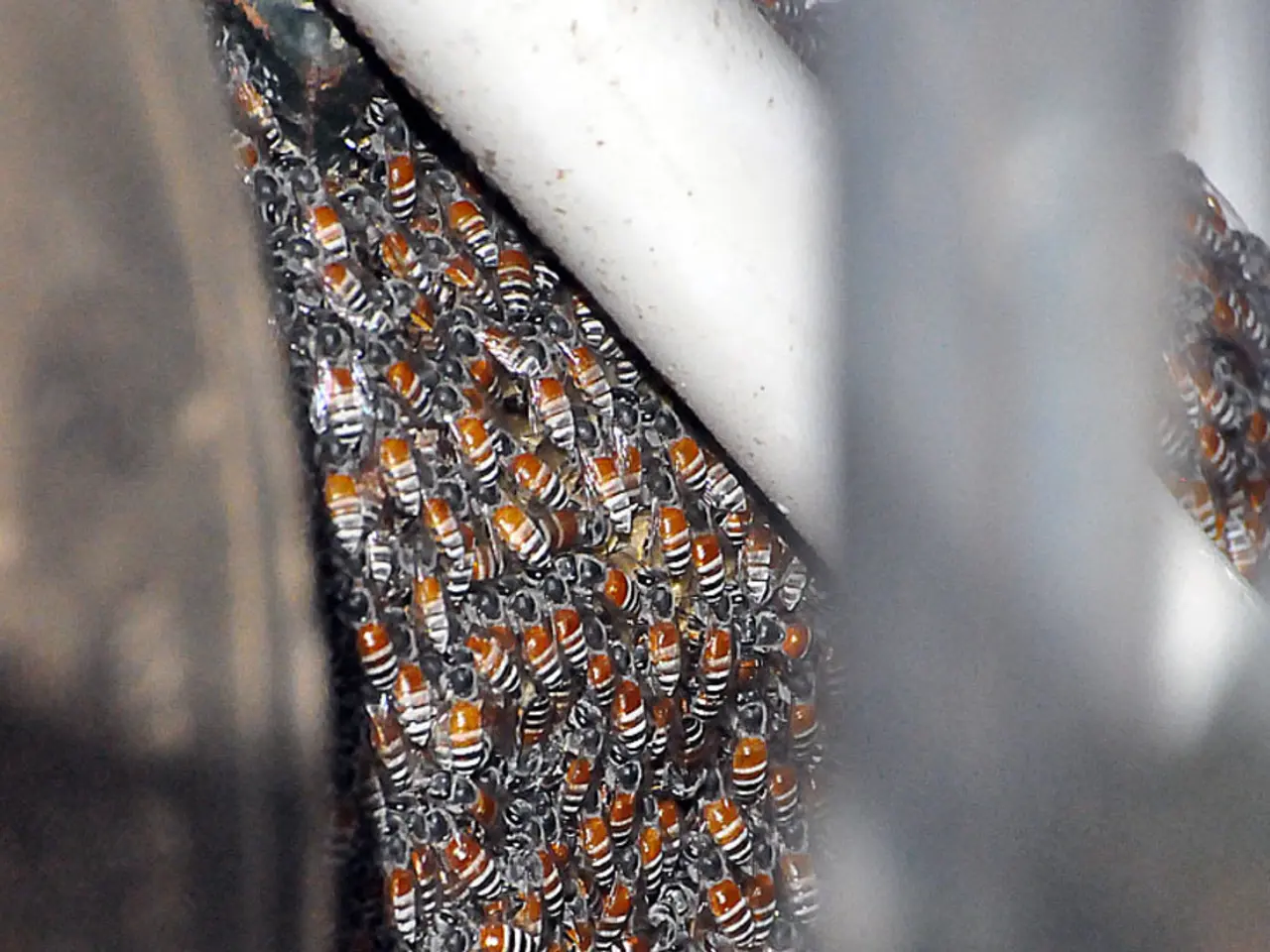Unveiling the Mystery Behind the Type of Honey Consumed
In an effort to combat the rising issue of counterfeit honey in the European market, the European Beekeeping Association has released a promotional video, urging consumers to choose authentic European honey and support local beekeepers. The video can be downloaded here.
The video comes at a critical time, as many beekeepers are abandoning their profession due to unbearable financial situations and unfair competition from counterfeits. This mass exodus could lead to a general trend if the situation does not change urgently, potentially causing incalculable damage to yields in agriculture.
The European Commission has issued a statement on imported honey, emphasising the importance of ensuring the authenticity of honey sold within the EU [link]. The Commission is taking steps to address this issue, but the fight against counterfeit honey requires a multi-faceted approach.
Analytical Testing for Authenticity
The European Union employs improved detection methods beyond traditional stable carbon isotope ratio analysis. Sophisticated laboratory techniques such as Liquid Chromatography-Mass Spectrometry (LC-MS) can distinguish different types of honey at a floral level, helping identify counterfeit or mixed honeys. National food safety authorities conduct targeted testing of honey batches, especially import consignments from countries with higher rates of suspicious samples [link].
Regulatory Definitions and Controls
The EU has a clear regulatory definition that honey is a product created solely by bees, and any addition or dilution constitutes adulteration, thus illegally labeling the product as honey. The Single Market Regulation (among other legislative acts) defines honey and sets standards that honey must meet to be sold as such within member states. Countries undertake legal actions such as raids and seizure of counterfeit honey to deter fraudulent practices [link].
Market Surveillance and Reporting
Food safety authorities monitor and report counterfeit honey cases. For example, Latvia identified several cases and encourages public reporting of suspicious honey through official channels [link]. The EU conducts coordinated control plans and publishes results to inform industry and consumers about the prevalence of fraudulent honey [link].
International Cooperation and Industry Initiatives
Partnerships between companies and laboratories in different countries help expand testing capabilities and crackdown on fake honey entering various markets, including the EU. Legislative initiatives similar to the U.S. Honey Integrity Act are supported to establish national standards and increase enforcement against fraud, which can serve as models for Europe [link].
Consumer Awareness and Education
Public education about honey authenticity and the importance of sourcing from reputable producers supports market demand for genuine honey and reduces market space for counterfeit products. An article explaining why Europeans should choose European honey for consumption is available here
Despite these measures, challenges remain due to evolving adulteration techniques and global trade complexities. However, with continued efforts from beekeepers, regulatory bodies, and consumers, the fight against counterfeit honey can be won.
Background Information
World Bee Day is celebrated on May 20th to raise awareness of the vital role bees play in our ecosystems and food production. The day was initiated by Slovenia and recognised by the United Nations in 2017. The European Beekeeping Association, led by President Boštjan Noč, was recently founded with the main goal of fighting against counterfeit honey.
[1] European Food Safety Authority (EFSA). (2021). Adulteration of honey: An overview of the current situation and potential detection methods. [online] Available at: [link]
[2] European Commission. (2021). EU actions to combat fraud in the honey sector. [online] Available at: [link]
[3] Food Integrity International. (2021). Partnerships and initiatives in the fight against honey fraud. [online] Available at: [link]
[4] European Union Network for the Detection of Fraudulent Practices. (2021). Enforcement actions against counterfeit honey. [online] Available at: [link]
[5] European Union Observatory for Nanomaterials. (2021). Nanotechnology in food: The case of honey. [online] Available at: [link]
The European Commission's statement on imported honey serves as a reminder to uphold the authenticity of health-and-wellness products, including food-and-drink items like honey, within the EU. The video released by the European Beekeeping Association aims to educate consumers on the importance of choosing authentic environmental-science-related products such as European honey to support local lifestyles and the environment.




